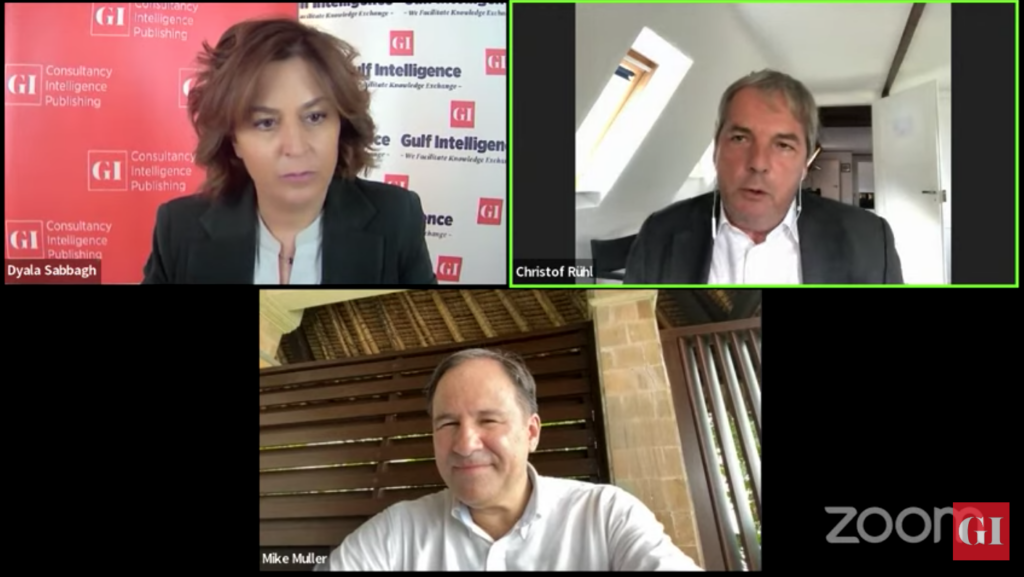Christof Rühl, member of the Advisory Board of Crystol Energy and a Senior Fellow at the Center on Global Energy Policy at Columbia University, discusses the latest global macroeconomic developments and energy markets in this weekly interview to the Gulf Intelligence.
Christof comments on whether the market has absorbed revised demand forecasts for 2023, explaining that the narrative has been that oil prices will depend on whether we have weak or strong demand in the US or China. It’s obvious now when the actual numbers come in and are put in historical perspective, that it is high oil prices that have taken their toll on demand. If you have a period of sustained high prices, that causes demand destruction, and the same economic activity will then be satisfied with less oil demand. That’s what we are seeing.
The other development is that on the supply side because of the OPEC cuts, we now have safety buffers in the system, which were previously very small. So, that pressure on inventories which would have resulted in higher price spikes, has been removed. Fundamentals are then reasserting themselves and probably point more towards $60-70 than $90-100. Short sellers, long sellers, speculators – while fulfilling a beneficial role because they smoothen prices by being present in the market – at the end of the day don’t determine where the trend is going.
With respect to the disappointment in the market at Chinese demand, it was never going to be this big explosion. China did not have the same monetary transfers during the lockdown period as we saw in the US and, to some extent, in Europe. So, the lockdown in China has just integrated itself into the trend growth decline.
Meanwhile, in the US, the data is maybe indicating an economy technically bordering a recession, but it’s still functioning on a very high level, with full employment, most cylinders humming and consumer spending strong. Also, trade disruptions did not hit the US as much as Europe and China, and its domestic market is also large enough for driving other oil demand components to play an independent role. The risks today for the US economy come from its financial sector.
Christof is joined by Mike Muller, Head of Vitol Asia. Dyala Sabbagh from Gulf Intelligence moderates the discussion.
Related Analysis
“Global economic uncertainty means oil prices – and your fuel bill – will continue to surprise this year“, Dr Carole Nakhle, Apr 2023
Related Comments
“After conflicting expectations about oil prices, how do experts read the market prospects in 2023?“, Dr Carole Nakhle, Apr 2023
“Oil markets react to OPEC+’s latest decision“, Dr Carole Nakhle, Apr 2023









